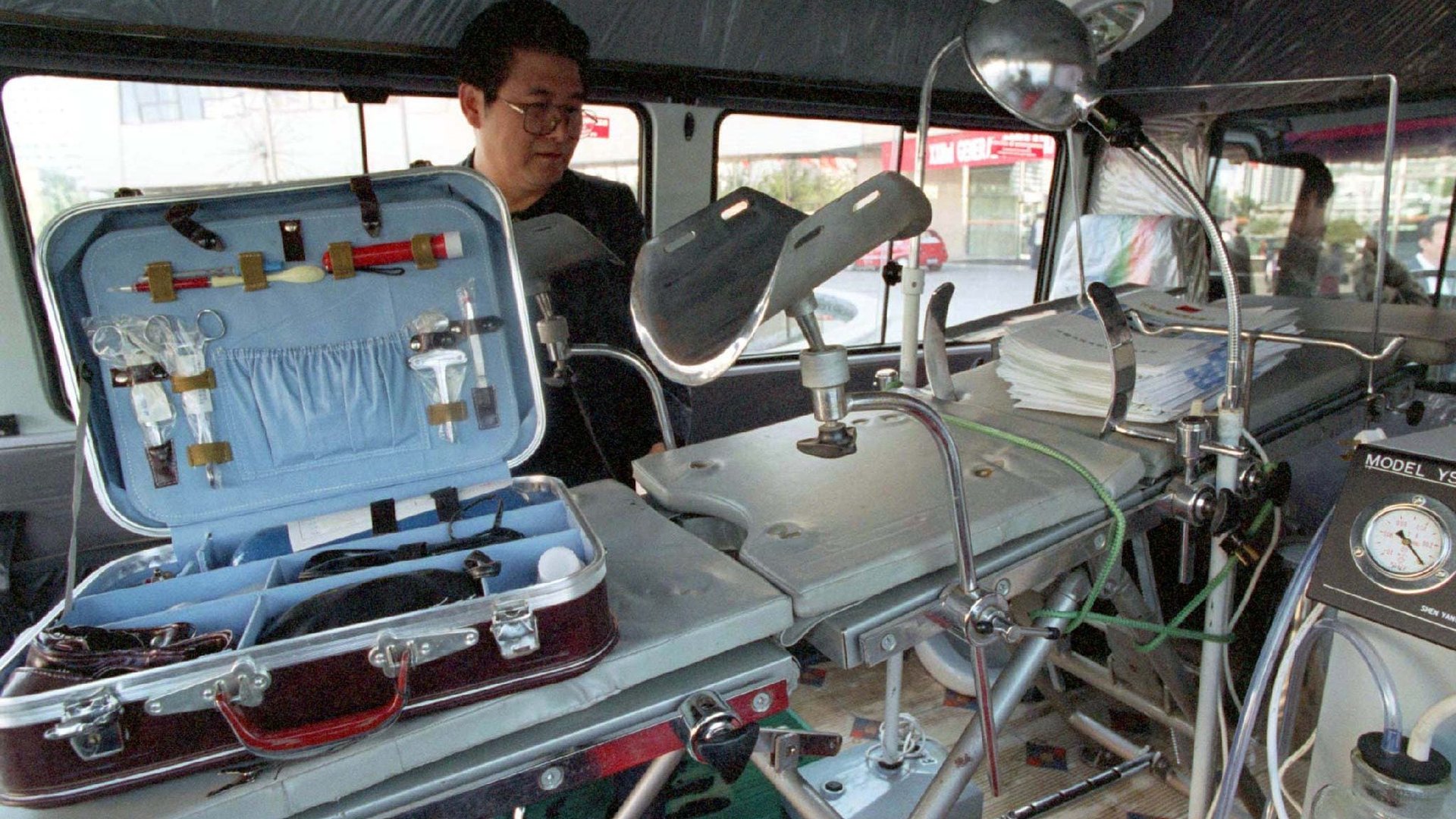Trump’s cuts to global reproductive health could lead to more coerced abortions in China
US president Donald Trump has been vocal about his intention to cut United Nations funding, which the US is the biggest contributor to. He has now followed up the promise with action, and his first target is the UN Population Fund (UNFPA).


US president Donald Trump has been vocal about his intention to cut United Nations funding, which the US is the biggest contributor to. He has now followed up the promise with action, and his first target is the UN Population Fund (UNFPA).
In a March 30 letter to Congress (pdf), the administration informed the chairman of the Senate foreign relations committee of its intention to cut $32.5 million from the budget to UNFPA, which provides family planning and reproductive health in 150 countries. The US, which paid $69 million in 2016, is the fourth largest donor to UNFPA, an agency whose budget has been shrinking in the past few years. Its budget was 10% smaller in 2015 than 2014 ($79 million less).
In its letter to the US Senate, the Department of State says that the funds cut from UNFPA will be diverted to other programs to support reproductive health under the US’s Global Health Programs.
This isn’t the first time Republican administrations have cut UNFPA funding. The 1985 Kemp-Kasten Amendment prohibited the use of federal funds for coercive abortion or involuntary sterilization, and under president George W. Bush that law was applied to UNFPA based on the allegation that it would use the funds to finance forced abortions China. In the documents sent to the Senate, the UNFPA is accused of involvement in forced sterilization and abortion population control measures put in place by the Chinese government. That’s because the UNFPA supports China’s National Health and Family Planning Commission (NHFPC), a government agency that, according to a 2016 bipartisan report from the state department, enacts coercive family planning measures.
As that report explicitly says, there is no evidence that UNFPA funding is directed to any forced procedures, but the US government has considered the mere existence of a partnership enough to justify discontinuing funding to the UN agency. In a statement responding to the funding cut, UNFPA denied that the fund “supports, or participates in the management of, a programme of coercive abortion or involuntary sterilization,” and said that UN member states “have long described UNFPA’s work in China as a force for good.”
The agency pointed out that its work prevents maternal deaths and violence against women around the world, in part by preventing unwanted pregnancies, reducing illegal abortion, and providing fistula surgeries in the developing world. It claims to have saved 2,340 women from dying in childbirth or pregnancy and prevented 295,000 unsafe abortions. UNFPA also plays an important role in managing maternal health in refugee camps: For example, since 2014 it has helped deliver 7,000 children in the Zaatari refugee camp in Jordan, without any maternal deaths.
The Trump administration had already reduced funding for reproductive health by reinstating the Mexico City policy (known as the global gag rule by abortion rights organizations), a policy that goes back to the Reagan administration, which has been reinstated by Republican presidents. It blocks US federal funding for groups that provide abortion services, counseling, or referrals, or advocate for abortion rights, in the 75 countries to which the US provides aid money through bilateral relations. Withdrawing funds from UNFPA affects a wider area, as the agency operates in 150 countries.
Brian Dixon, the senior vice president of the Population Connection Action Fund, a grassroots organization working on family planning advocacy in the US and around the world, told Quartz that the US’s justification for its funds withdrawal is counterproductive if the aim is to reduced coerced family planning measures. Financing UNFPA would be the best way to ensure that reproductive health practices in China are done safely and ethically, he says. “UNFPA is the voice of human rights in China,” he says. “No one else is doing that.”
For its part, the UNFPA says it’s not in a position to stop working with NHFPC. A spokesperson told Quartz that the agency “was assigned by UN member states to promote the human rights-based approach to family planning in China, because women in China have the right to seek family planning according to those terms,” and is therefore required to collaborate with NHFPC, the government’s agency dedicated to family planning.
Dixon argues that the global gag rule, the cuts in Planned Parenthood funding, and now to the UNFPA are all parts of the same strategy. He says the Trump administration is working to “restrict women everywhere, including at home, from accessing reproductive care.”